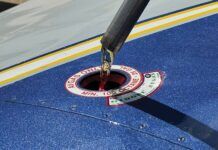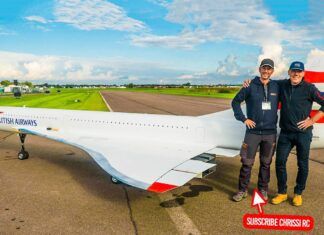Today’s blog was going to be a PSA to set straight the horrible thrashing general aviation took at the hands of yet another misguided network news feature.
But, damn it, foiled again. The piece in question ran Sunday night on NBC’s Dateline and chronicled the story of McKenzie Morgan, a plucky 17-year-old student pilot who took a wrong turn and crash landed in the Wyoming mountains, miles from her intended route on her long cross country. You can see it here.
The story is billed as an “investigation,” but it’s really a dramatized rendering that keeps the viewer on the edge of the seat wondering if this kid is gonna survive. Spoiler alert: She does and even gets back in the saddle to earn her private. You’ll have to sit through 20 minutes of overwrought voice-over and interviewing by the ever-unctuous Keith Morrison to figure that out, but once you do, the rest of the story falls together engagingly, if not artfully. It has some terrific aerial footage of mountains and even some nice air-to-air. (Wish they knew about prop filters, however.)
The PSA part I had planned was to take Ms. Morgan’s flight instructor, Bobbi Powers, to task for sending her student into the wild without any survival gear. I intended to use that as a platform for one of my periodic spleen ventings about people not carrying even minimal survival equipment in airplanes. Then I read the accident docket. Stand down, big boy.
Although it wasn’t apparent from the script, probably to heighten the sense of imminent danger, the airplane was equipped. Morgan had water, charts, a GPS, some food and a vest with survival gear Powers had loaned her. It doesn’t matter what or wasn’t in the gear, what matters is the consciousness of recognizing the sort of risk flying over such remote country represents and habitually equipping to deal with it. In my experience, people in the remote parts of the west and northern tier have this consciousness practically ingrained. But humanity is not homogenously perfect (or rational) and gadgets like cellphones and GPS tend to knock the sharp edges off the risk of being in extremis in remote areas. Crash your airplane in the middle of the New Jersey Pine Barrens and that lesson might be learned too late.
So, now comes my periodic reminder to carry some minimal survival gear in your airplane, no matter where you fly it. There are inexpensive commercial survival packages available or you can assemble your own. We’ve published survival equipment articles, like this one on life rafts. The AOPA Air Safety Institute has some materials as well. This stuff is worth more than just passing consideration.
Given audiences’ hunger for titillation, the producers exaggerated the remoteness of Ms. Morgan’s plight. By sheer good luck, she was spotted by two hunters on horseback and one of them led her to a trailhead, thence to a clinic for a checkup. She made it home late the same night from a crash that occurred in mid-afternoon. And if you’re a flight instructor who enjoys vicarious angst, I challenge you not to feel it when Powers describes her helplessness and worry when her student becomes overdue. I think most of us have suffered that to some degree. Although I can’t recommend it, there’s nothing to equal it as a character builder.

































